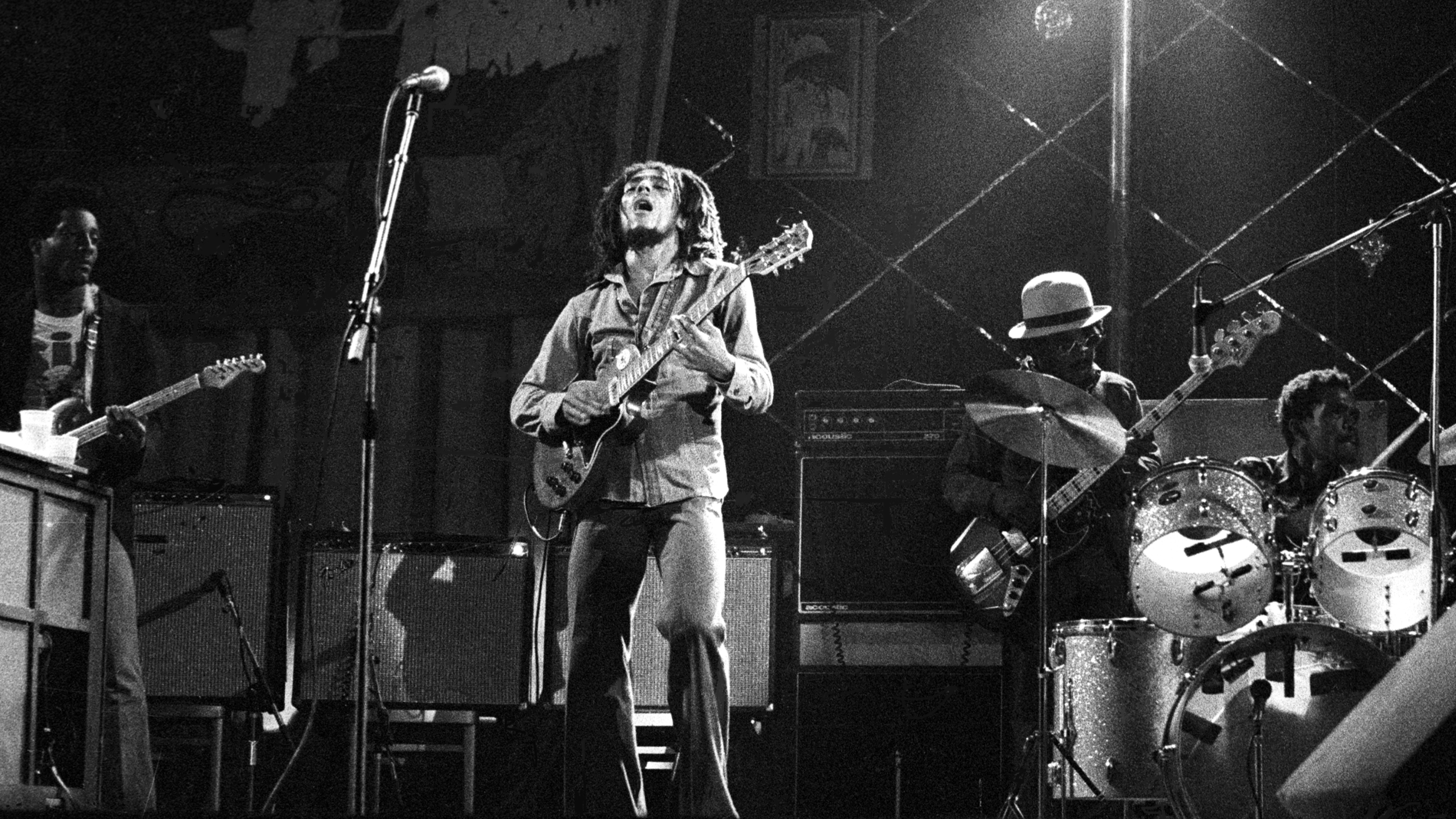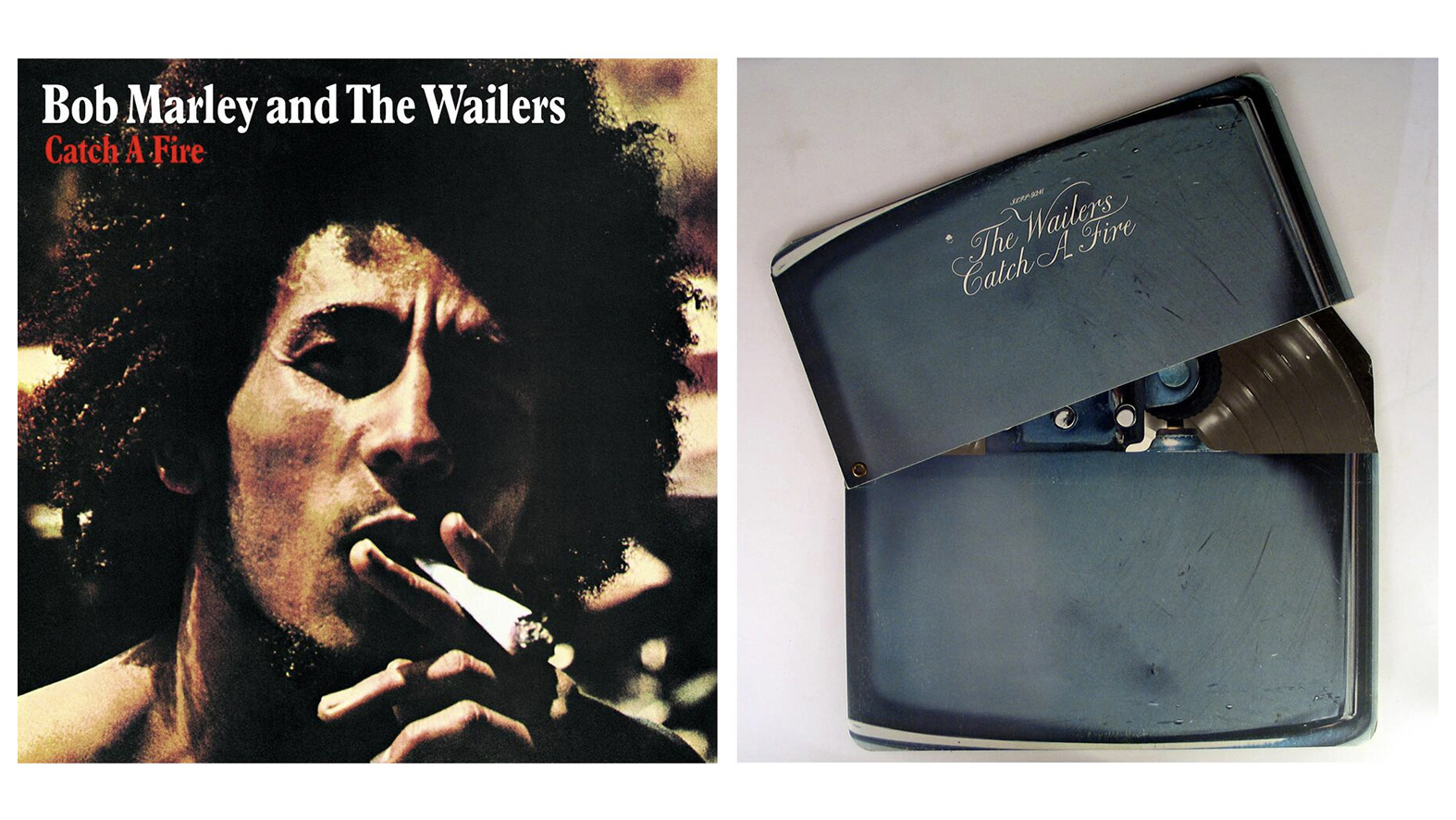"Reggae is more freeform than the blues. But more important, reggae is for everyone": Bob Marley and the Wailers' Catch a Fire, track-by-track
Seminal reggae breakthrough broken down

Want all the hottest music and gear news, reviews, deals, features and more, direct to your inbox? Sign up here.
You are now subscribed
Your newsletter sign-up was successful
APRIL 1973: With Catch a Fire, the band known then as simply The Wailers, created a bridge between the deep roots sound of Jamaica and the commercial rock music of the international market, particularly the USA and UK.
Fronted by Bob Marley, Peter Tosh and Bunny Wailer and recorded between three different eight-track studios in Kingston, Jamaica, Catch a Fire was produced in London by Chris Blackwell of Island Records.
The tracks – seven of which were composed by Marley and the other two by singer and lead guitarist, Peter Tosh – are a thoughtful and heartfelt collection, driven by a raw sense of urgency.

Talking to Billboard in 1973, Marley said, "As for the harshness of my material, I compare it to the old American blues. It tells the truth from the people's viewpoint.
"Reggae is more freeform than the blues. But more important, reggae is for everyone – and we hope we can help everyone with our music."
On Catch a Fire, Marley and Tosh are courageous with their language and delivery, whether lamenting the oppression of Black people, calling for uprising from poverty or singing love songs.
The original 20,000 pressed vinyl came in a sleeve, designed by graphic artist Rod Dyer, that depicted and opened like a real Zippo lighter (above).
Want all the hottest music and gear news, reviews, deals, features and more, direct to your inbox? Sign up here.
Copies from that original pressing have since become a collector’s item and the cover art was reproduced for the 2001 deluxe CD edition, which includes the original unreleased ‘Jamaica version’ of the album.
1. Concrete Jungle
Concrete Jungle features an uncharacteristically long introduction for a reggae song – easing rock fans in with familiar sounds of electric guitar, before the thumping bass and classic reggae one drop rhythm launches after 30 seconds. Later, it features a searing guitar solo from Muscle Shoals session guitarist, Wayne Perkins.
The lyrics contain recognisable metaphors concerned with darkness and lightness, reminiscent of passages from the Bible and many aspects of both Caribbean and Western culture. Concrete Jungle – or Jungle for short – is the unofficial name of a notorious housing project built in the early 1970s on the edges of West Kingston’s Trench Town.
With this track, Marley gives a visceral commentary on the unhealthy aspects of urban life, as well as shining a light on the very real place where his friends lived.
2. Slave Driver
In Slave Driver, Marley and The Wailers continue to deliver a bold and meaningful message, giving a voice to some of their country’s most marginalised people and acknowledging how racism continued to thrive within the structures of society.
Yet the beautiful vocal harmonies created by Marley, Tosh and Wailer mean the listener might not even realise at first how political the song is. The title of the album – meaning ‘go to hell’ – comes from this track, and is sung in the background as Marley tells “slave drivers” with a calm certainty that “the table is turn’” and they’re “gonna get burn” for their continued mistreatment of African people.
3. 400 Years
Written and composed by Peter Tosh, previous versions of 400 Years by The Wailers were already well known in Jamaica – particularly one produced by Lee ‘Scratch’ Perry. It’s a haunting song of social criticism, referring to slavery in many forms and emphasising the relentlessness of oppression with the repeated “It’s been four hundred years”,
in addition to the chilling backing vocals. Once again, the listener is asked to connect past and present atrocities together. But despite all of the horrendous references, there is also a hopeful side to the track with its reference to the biblical Genesis 15, which holds the belief that after 400 years of mistreatment, liberation awaits.
4. Stop That Train
The second track by Peter Tosh on the album, Stop That Train, is another indication of the success he would go on to have as a solo artist. The rich vocal harmonies by Marley and Wailer ensure this track stays in your head long after you’ve stopped listening to it.
The listener can feel Tosh’s sense of despair and heartbreak with lines like “even though I tried my best/I still don’t find no happiness”. It is an achingly sad subject matter, understood by many to be about someone contemplating suicide – or at least, somebody leaving a home they had once loved and tried to make better. But somehow, once again, the song seems to float and fade out with a sense of hope. In the last 15 seconds of the track, we hear Tosh mumble “it gotta be better”.
5. Baby We’ve Got a Date (Rock It Baby)
Baby We’ve Got a Date (Rock It Baby) is the first love song of the album, and it comes at the end of the first side of the original record – almost as something of a reward to new international listeners for sticking with the activism, and a promise of lighter content on the next side.
It features another appearance from Wayne Perkins on the slide guitar, as well as backing vocals from Rita Marley and her friend Marcia Griffiths – a popular solo artist in Jamaica. This track has a mellow, positive feeling to it, and is about somebody who’s looking forward to the date they have planned at “a quarter to eight”.
6. Stir It Up
This hypnotic track is another that was already well known in Jamaica as a Wailers track, and went on to become Marley’s first successful song outside of his homeland. They first released Stir It Up in 1967, and in 1972 American singer Johnny Nash released a cover version that scored a Top 15 hit in both the US and the UK – perhaps encouraging Marley to re-record it for the upcoming album. ‘Stir It Up’ also features Wayne Perkins, again, with a wah- wah-infused guitar lead. The lyrics are soothing and sensual and it’s been said that Marley originally wrote the song for his wife, Rita. It’s the longest song on the album – a smooth five minutes and 32 seconds of the irresistible classic elements of reggae music – funky guitar, congas, keyboards and that steady, rocking beat.
7. Kinky Reggae
A laid-back, cheerful song that remained a firm fan favourite and was almost always played at Marley concerts. Kinky Reggae, following the lead of Stir It Up, is full of joy and demands the listener indulges in good times and some serious skanking.
Fans have speculated about messages in Marley’s lyrics in the track – it could be a coded story about drugs, a celebration of promiscuous sex or a secretive show of support for the queer community – but most critics agree that it’s about somebody who can’t settle down and that it’s full of positive vibrations.
8. No More Trouble
No More Trouble has few lyrics – the main ones being “We don’t need no more trouble”, repeated several times by Marley as well as in the soul-stirring harmonic backing vocals by Rita Marley and Marcia Griffiths. Its beauty and its power is in this evocative simplicity.
A virtual collaboration with Erykah Badu was the first track on a 1999 remix album by hip-hop and rock artists, with production by Stephen Marley, called Chant Down Babylon.
9. Midnight Ravers
Featuring a classic Aston ‘Family Man’ Barrett bass line pounding with conviction and driving the track forwards, Midnight Ravers ends the album with a feeling of optimism and persistence. With the repeated “don’t let me down!”, Marley reminds the listeners that he’s relying on them to help spread his music’s message, and be a part of the positive change he sought to bring to the world.
MusicRadar is the number one website for music-makers of all kinds, be they guitarists, drummers, keyboard players, DJs or producers...
- GEAR: We help musicians find the best gear with top-ranking gear round-ups and high-quality, authoritative reviews by a wide team of highly experienced experts.
- TIPS: We also provide tuition, from bite-sized tips to advanced work-outs and guidance from recognised musicians and stars.
- STARS: We talk to musicians and stars about their creative processes, and the nuts and bolts of their gear and technique. We give fans an insight into the craft of music-making that no other music website can.





